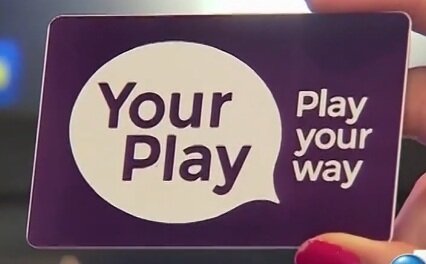“YourPlay” is shaping up to be the worst thing to happen to Victorian gamblers since poker machines were introduced to the state over 20 years ago.
And by “worst”, I don’t mean it’s going to stop them gambling. Indeed, that’s the whole point.
“YourPlay” is the name given to the Victorian state government’s new voluntary pre-commitment scheme for poker machines. Gamblers can sign up for a swipe card which can be used to set time and spending limits on gambling. If any of these limits are reached, warning messages are displayed on the screen.
This is a scheme that enjoys bi-partisan support; it was legislated by the previous government, and both Labor and the Coalition are keen to take the credit. And it’s currently being trialled in 14 venues around the state, although the trial is only to identify technical bugs, not the actual effectiveness of the scheme.
The industry loves it too. Clubs Australia and the Australian Hotels Association have long supported voluntary pre-commitment, and in their long-running battle with Andrew Wilkie and the federal Labor party (after the 2010 election), held it up as an alternative to the reforms they were opposing.
By the end of 2015, all poker machines in Victoria must be able to accept a “YourPlay” card. The cost of implementing this program is closing in on $200 million.
Which begs the question, will it work? The short answer is no.
The problem with “YourPlay” is the reason industry and the government love it: it’s voluntary.
• Gamblers can play poker machines with or without a “YourPlay” card.
• If you sign up to the scheme, you can choose not to use your card.
• You can sign up anonymously if you want.
• If you do use your card, you can choose to set any limit at all, including $0 or $100,000.
• If you reach your limit, you can choose to continue playing.
Without enforcement, schemes like “YourPlay” can never work. The whole idea of pre-commitment is that gamblers set limits before they gamble… limits they have to stick to. By making it voluntary, pre-commitment becomes useless. This conclusion has been widely confirmed by gambling researchers, counsellors, poker machine addicts and advocates of gambling reform for years.
Interestingly, a scheme very much like “YourPlay” was implemented in Nova Scotia, Canada, in 2012. That scheme, called “MyPlay”, was run by a company called Techlink.
Two years later they shut it down because it wasn’t working.
Techlink, by the way, has a very close association with Intralot, the company responsible for “YourPlay” and also for monitoring all of Victoria’s poker machines. Make of that what you will.
If “YourPlay” was just a useless solution then this wouldn’t be such a problem. No one gets helped but no one gets hurt either. Unfortunately, it goes further than that.
Rolling out “YourPlay” allows both the government and the poker machine industry to sit back and say, “We’ve done our bit”. In their eyes, it absolves them of any responsibility, placing the onus for gambling-related harm and addiction squarely back on gamblers, and it excuses them from taking any further action to combat the ever-growing issue of problem gambling and poker machine addiction.
Indeed, Victoria’s Gaming Minister Jane Garrett recently confirmed this, saying:
“It is a voluntary system. So if you do choose to continue to gamble that is your decision.”
That’s the real problem with this scheme. It’s a placebo that has taken the place of other measures (such as $1 bets) that actually could make a difference. Get ready to hear “YourPlay” spruiked by government and industry alike whenever problem gambling is raised, whether it’s relevant or not, whether it works or not.
What was it the industry used to say? “Won’t work, will hurt”?
You bet.




At least once the system is in it can be made mandatory and married with facial recognition software on the machines. It must be seen as a first step.
Tim, I’d have more confidence of that happening if they’d legislated “mandatory-ready”, like the aborted Canberra trials… but they haven’t. You’ll see it will be “too expensive” and “too much work” to swap this voluntary system to mandatory.
As an Intralot employee and someone heavily involved in the YourPlay project, I would like to categorically state that there is no association whatsoever between Intralot and Techlink. There were plans of Intralot cooperating with Techlink for the Nova Scotia responsible gaming project several years ago, but the incompatibilities between the technologies of the two companies’ products were so substantial that this cooperation never really proceeded beyond generic talks at a senior management level.
There is only one control measure that I think would be effective – which is why it will never be done. Players should have the right to ban themselves from playing for however long they want to (for me it would be the rest of my life). In order to play, simple scanners would have to be installed on the machine (a very inexpensive device) to read the player’s license (all of which have bar codes now).
If someone put themselves on the exclusion list they would not be able to play. I’m certain the arguments from the “industry” would be that the devices are too expensive to install (they’re not) or that a player can use someone else’s i.d. (the addiction is very private and shameful.. so this would be rare and it would also be a crime to provide a false ID to another – similar to buying liquor for someone underage)…at any rate this would help millions, if not all. That’s why it will never happen. Instead the “industry” will feign support and but some money into programs that don’t really have any effect. Tragic indeed.